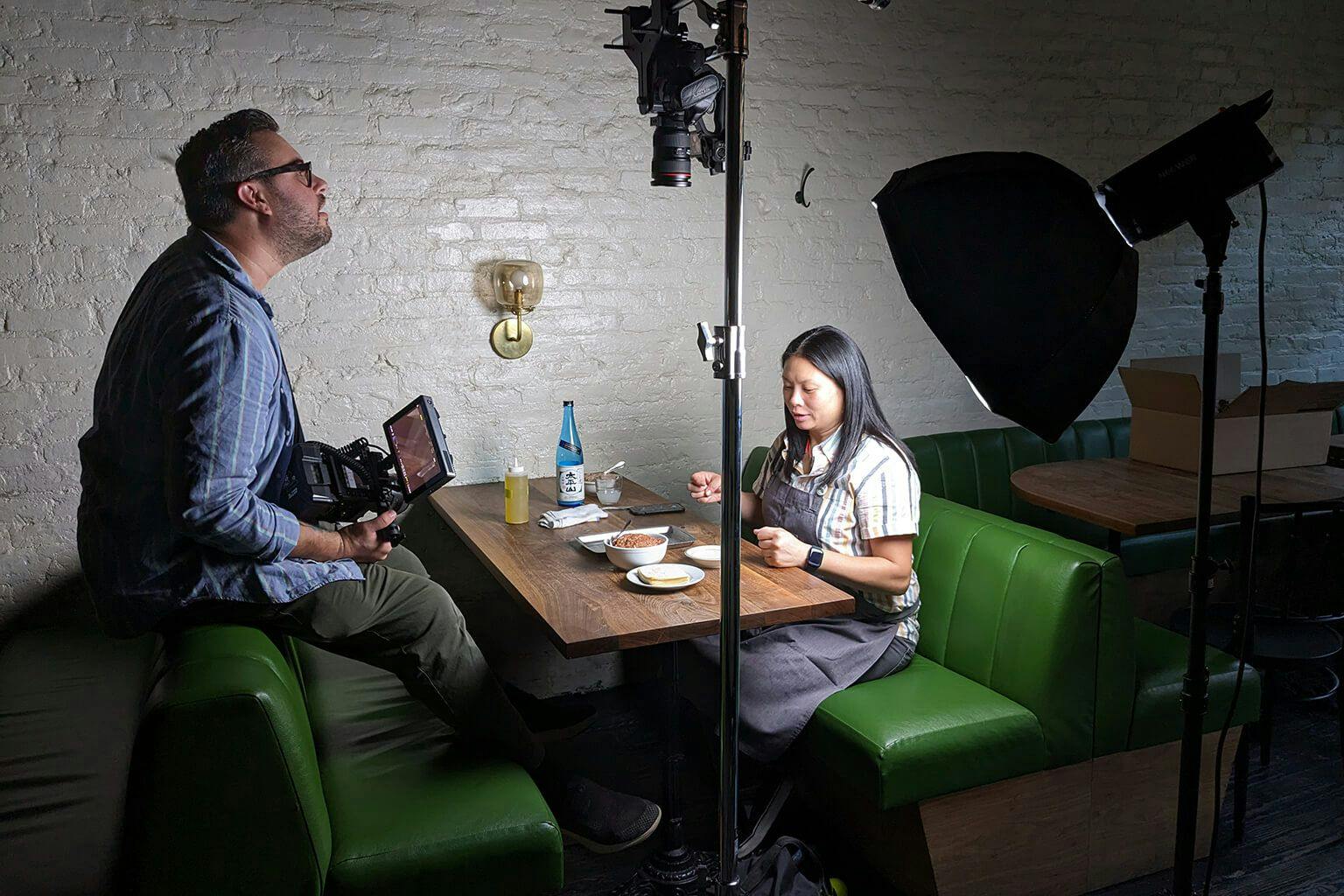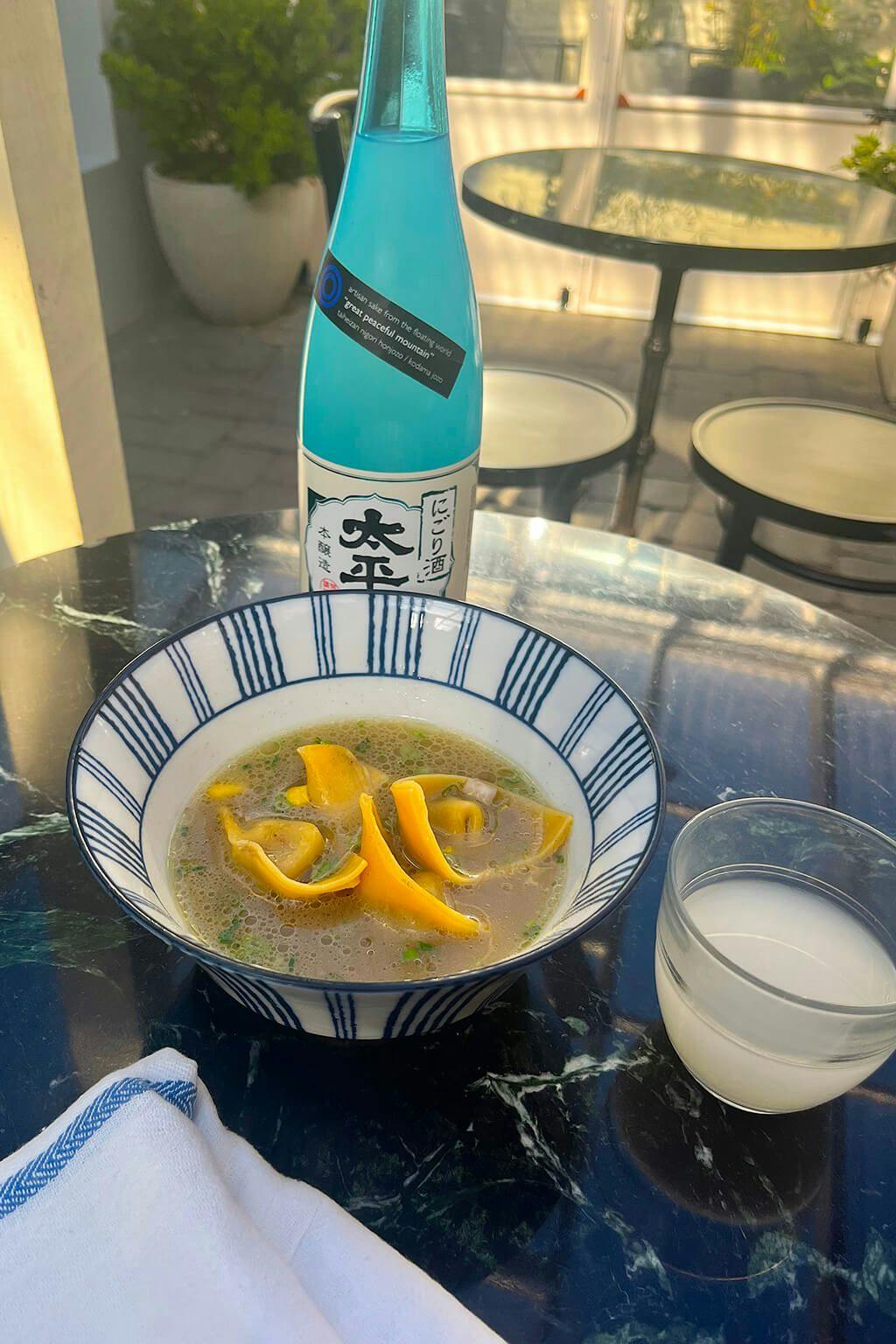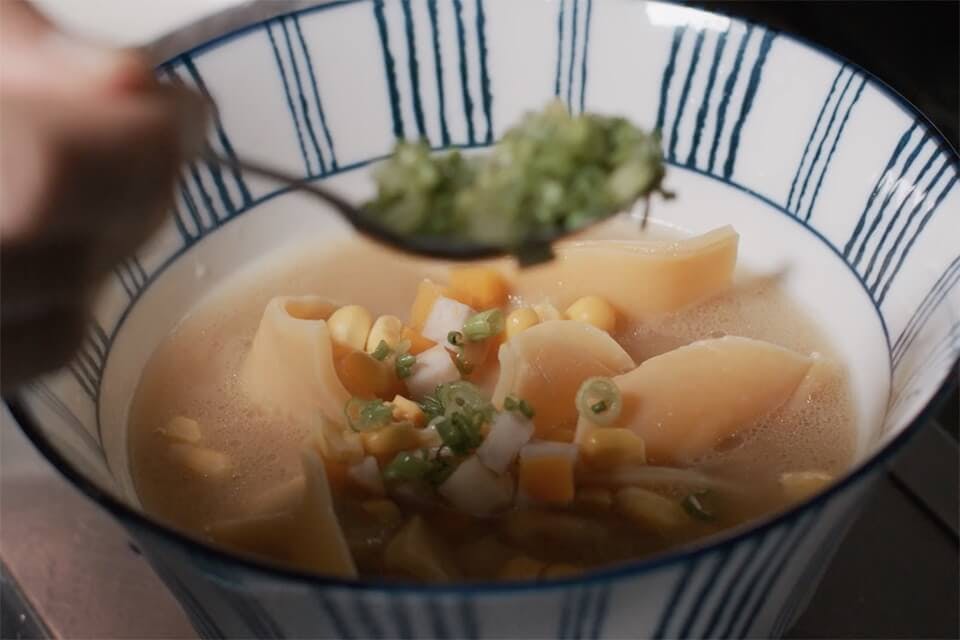Connecting Chinese-Latino Cuisine and Sake at Chino Grande
Table of Contents
The way Chef Christine Lau’s fingers nimbly fold the wontons as she carries on in conversation is clearly muscle memory. But it’s more than just practice; it’s as if the memories and traditions of generations past have settled into her cells, and before she even tells the story of how she would help her mother prepare dinner as a child, I already know, because it feels like I’m watching the scene play out in front of me in real time.
“I would wrap them while she was making other things and prepping vegetables or whatever else was there for dinner,” Lau remembers. “I was always super into folding, not just because I enjoyed it, but also because I got to watch TV while I was doing it.”
It’s a story as American as apple pie: Growing up in Oakland, California, where her parents had immigrated from Hong Kong to attend college; learning multiple cultures at once from her spot between the kitchen and the TV. Figures like Julia Child, Jacques Pepin and Jacques Torres caught her attention, and eventually, she realized that if she could fold wontons, she could also make fresh tortellini, ravioli, and even empanadas.

Chef Lau gathers the pork filling and wonton wrappers for filming with the Balas Brothers. | Photo by Taylor Markarian.
“I wanted to get to New York because it was the epicenter of food,” she says. “I tried to do everything around food: Food PR, marketing, even trying to get into editorial stuff in college to see if I could shake cooking in a kitchen, and I just couldn’t shake it. In 2004, I worked in a restaurant called Alto, which is Scott Conant’s restaurant in midtown, and I haven’t stopped cooking since.”
Over the years, Chef Lau gained experience in Italian, Spanish, Japanese and even Basque cuisine, soaking up whatever teachings she could in this culinary mecca. She then took a job as the executive chef at Kimika, an Italian-Japanese restaurant in Nolita, where she crafted several cross-cultural dishes that are still on the menu.
But today, as we film for the Tippsy chef video series, Chef Lau is the driving force behind Chino Grande’s Chinese-Latino offerings in Williamsburg, Brooklyn, and she has no qualms about pairing her pork wonton caldo soup with Japanese sake. It’s a meal that marries the homecooking of her childhood with a Mexican influence that represents a larger cultural history.
“It’s a story about a double immigration,” she explains. “It’s a story about Chinese immigrants that immigrated to different Latin American countries, and then they immigrated to the U.S. … They have been exposed to these Latin American flavors, but then they were opening restaurants, and they added some of those components, whether they did or it was the next generation.

Pork wonton caldo soup with Taiheizan “Nigori” on Chino Grande’s back patio. | Photo by Taylor Markarian.
“The food exists in these Chinese-Latino restaurants in New York. It has this really amazing history. So I was like, well why don’t we do our version, and an homage to something that is really unique to New York City? So [pork wonton caldo] is our version of wonton soup here.”
It’s a new take on Chef Lau’s absolute favorite dish — one that all of America is also enamored with. So even if Brooklyn isn’t a quick commute for you, this is a pairing you can have with wonton soup from your favorite local Chinese restaurant.
As far as Chef Lau is concerned, there couldn’t be a better beverage pairing for this soup.
“Having this sake here and pairing it with what we’re cooking here at Chino Grande magnifies exactly what we’re trying to do here,” she says. “Sake shouldn’t only live in a Japanese restaurant, let alone an Asian restaurant. … We’re getting to the point in the world of beverage that the door is really opening, possibly, to have that fourth category. The Asian-American food movement is really morphing and changing — I think we’re having a moment.”
After preparing the broth, mixing the pork filling and folding the wontons, the soup is finally ready to taste alongside a bottle of Taiheizan “Nigori.” Chef Lau feels that this light, somewhat dry nigori — a cloudy sake that retains some of the rice particles from the brewing process — is a refreshing complement to the richness of the broth and the meat.
“You’ve got the salinity from the caldo, and you’ve got the dryness from the Taiheizan, and it really balances out,” she says. “It wants you having more.”
Watch the “Tippsy Chef” video series to hear more of Chef Lau’s thoughts on why this is “the perfect pairing,” and let us know what you think when you try it at home!

Taylor Markarian
Taylor Markarian is a culture journalist whose work spans the food and beverage, entertainment and travel industries. She is passionate about world travel and learning about different lifestyles and subcultures across the globe. Markarian is also the author of “From the Basement: A History of Emo Music and How It Changed Society” (Mango Publishing, 2019). Explore her work by visiting her portfolio.
Learn about Tippsy’s Editorial process
Recent posts
All about sake
Sign up to receive special offers and sake inspiration!








